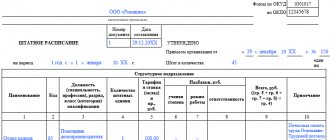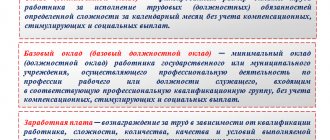The problem of non-payment of wages and failure to meet payment deadlines is currently quite acute. The legislation of the Russian Federation provides for a set of articles and norms designed to protect the rights of workers. Control in the field of remuneration can be exercised by several government structures at once. At the same time, employees who find themselves in a situation in which they cannot receive the money they earn on a timely basis often do not know where to turn, or how to properly file such an appeal if the employer neglects its obligations under the employment contract. How to collect wage arrears from an employer – our material will be devoted to this topic. The employee has the opportunity to protect his rights in court and pre-trial procedures.
Question: Can an employee prove the existence of an employment relationship in the absence of an employment contract and an entry in the work book? View answer
Where to go when your salary is delayed?
An employee whose salary is delayed has five tools to influence company management:
1. Compensation for each day of delay
First of all, you need to write a statement addressed to management demanding payment of wages and compensation for their delay. According to the lawyer of Burtsev, Agasiev and Partners colleague Vera Efremova, the amount of compensation cannot be lower than 1/150 of the current key rate of the Bank of Russia for each day of delay (at the time of preparation of the material, the key rate is 10%).
For example, if an employer transferred a salary of 50 thousand rubles to an employee 20 days later than the due date. Then he will have to additionally charge him 700 rubles (35 rubles for each day of waiting).
“As practice shows, employers are reluctant to respond to such statements. The chances of resolving the issue in this manner are not great,” Vera Efremova clarifies. Another peaceful, but more effective way is to initiate the creation of a labor dispute commission in the company.
2. Labor Dispute Commission
The commission must be created within 10 days from the receipt of such a proposal from the employee. It should include both management and employee representatives in equal numbers.
“The commission’s decision can be appealed in court within 10 days. After the 10-day period for appeal has passed, the commission’s decision is subject to execution. If the employer does not voluntarily comply with the decision of the commission, then the commission issues the employee a certificate, which is an executive document, on the basis of which enforcement proceedings are initiated in the bailiff service,” says Vera Efremova.
The advantage of this method of influence is that the commission’s decision comes into force within 10 days, while the court’s decision takes effect within 30, the lawyer notes. In addition, the employee has the opportunity to involve bailiffs in the matter as soon as possible.
3. Suspension of work
After 15 days of delay, the employee has the right to suspend the performance of his work duties and not come to work until the debt is paid, says Anna Chukseeva, editor-in-chief of the Rabota.ru project. At the same time, during this period the person retains his average earnings. True, it is necessary to notify the employer in writing (Article 142 of the Labor Code of the Russian Federation) about the decision to suspend work.
And one more important clarification from the expert: this right does not apply to people who provide livelihoods to the population:
- civil servants;
- ambulance workers;
- gas service workers;
- employees of energy supply companies;
- etc.
4. Complaint
In parallel with the methods listed above, an employee can write a complaint to the state labor inspectorate and the prosecutor.
“The complaint to the labor inspectorate must be accompanied by a copy of the employment contract and documents confirming the delay in wages (for example, payslips, an extract from a bank card, if the salary is received on it). You can make a complaint in person, or send it by mail or through the labor inspectorate website, the State Services portal in the form of an electronic document. The period for consideration of the complaint is 30 days,” notes lawyer Vera Efremova.
5. Court
The final stage in resolving disputes with the employer is the court. The process will take three months, of which up to two months the case will be pending, and another month will be required for the court decision to enter into force.
“After the court makes a decision to collect wages (and issues a writ of execution) or a court order, it is necessary to initiate enforcement proceedings by presenting the writ of execution or court order to the bailiff service at the employer’s location within 3 years,” says the lawyer .
How is the existence of an employment relationship proven?
The existence of an employment relationship can be proven without an employment contract. What exactly can become evidence of the existence of an employment relationship between an employee and an employer can be found in the Resolution of the Plenum of the Supreme Court of May 29, 2018.
Evidence of an employment relationship
- Personnel documents: an assignment given to the employee in writing, a business trip assignment, an agreement on financial responsibility, a shift schedule, a time sheet, a schedule of days off and vacations, which includes the employee’s name. Moreover, it is not at all necessary that these documents bear the signature of the director and the seal of the organization. In order for these documents to be recognized as evidence, the testimony of one or two employees in court is sufficient.
- Any written confirmation. Here the range of evidence is almost limitless. For example, invoices, BSO, waybills, familiarization sheets, signatures on courier delivery documents. By the way, even a copy of such an employee’s passport found on you will serve as evidence. In general, you need to be careful with passports. They cannot be stored in an organization without an agreement on the processing of personal data.
- Documents confirming your visit to the office. For example, passes, security records, registration logs, audio and video recordings, etc.
- And finally, the testimony of other employees or witnesses. Not only employees, but also employees of partner companies may serve as witnesses. For example, a company that rents out office space to you or a company that provides security for a business center, drivers and couriers of partner companies, clients, and so on. An active resentful employee will always find “friends in misfortune” who will become his witnesses.
When to write a complaint?
You can write a complaint even on the first day of salary delay. But Vera Efremova advises waiting a reasonable period of time before making demands, because a delay in payment could also arise for some objective or technical reasons. However, you should not wait more than 10 days.
Waiting in this case should not be equated with inaction; the employee should regularly ask management what caused the delay and when the money will be transferred. “Proactivity in this case is welcome,” says Anna Chukseeva.
Managing partner of the recruiting company Inna Sumatokhina agrees with her: “It is good practice when the employer reports the reasons for the delay and the timing of the delay in salaries. If there are no explanations on the part of the employer, he behaves opaquely, then you need to go out to talk yourself, ask questions that concern you.”
According to the recruiter, it is important to find out an objective picture of the world: is it the employer’s dishonesty or there are objective reasons, such as overdue receivables from customers or something else.
In general, as experts note, you can contact the labor dispute commission within 3 months from the date of the delay in wages. You can file a claim with the labor inspectorate and the court within a year from the first day of delayed wages.
Disputes regarding the collection of wages from an employee
Yes, there are such things too. Art. 137 provides for cases when overpaid amounts are withheld from an employee. There are only three of them:
- error in calculations - letter of Rostrud dated 01.10.2012 N 1286-6-1;
- when considering a labor dispute, the employee was found guilty of failure to comply with labor standards or idle time;
- The court established the employee’s unlawful actions, which led to the excessive payment.
| Important! Technical errors (for example, repeated payment of wages for one period) are not recognized as counting errors - Ruling of the Supreme Court of the Russian Federation N 59-B11-17 of 01/20/2012. |
If the amount of damage as a result of an overpayment exceeds the employee’s average monthly earnings or he does not agree with the amount and basis of the withholding, the employer will have to recover these amounts through the court.
An employer can make a deduction from wages if the following conditions are simultaneously met:
- one month has not passed since the end of the period specified for the return of incorrectly calculated payments;
- the employee does not dispute the grounds and amounts of the deduction.
In all other cases, collection is carried out in court.
Is it dangerous to complain about an employer?
“There is no provision in the Labor Code of the Russian Federation that allows dismissing an employee for filing a complaint with the labor inspectorate or filing a lawsuit in court. But non-payment of wages to an employee, a complaint against the employer, in any case creates a conflict situation between them. And in each individual case, such situations are resolved differently,” warns Vera Efremova.
Just in case, an employee should, of course, record violations, for example, record conversations with management. “If such a situation arises, then to protect your rights, you can again contact the prosecutor’s office or the court. To establish a cause-and-effect relationship, the claim should be supported by evidence (inclination to resign at one’s own request, etc.),” advises the editor-in-chief of Rabota.ru.
In the same boat
Given all these difficulties, employers try to reach an understanding with employees, counting on their loyalty in the future. However, all relationships regarding “gray” payments remain outside the scope of the law, which leads to mutual threats, extortion, blackmail and other crimes.
How should an employer behave? The most reasonable solution is to pay severance pay. If this is impossible to do, then it is important, under any other conditions, to come to an agreement with the dismissed employee and find a compromise. Here is one of the arguments that allows the employer not to find himself in a difficult situation. Obviously, contacting the tax authorities is likely to reduce the employee’s savings - after all, personal income tax was not withheld from “gray” payments.
In writing, the former employee will be provided with a recalculation for the last year, taking into account personal income tax withholding from the entire amount of his earnings. It is easy to calculate that at a tax rate of 13 percent, severance pay equal to 100 percent of salary will not fully cover the amount of the annual tax withholding. As a result, the employee will owe the budget approximately half of the amount he claimed: 13% × 12 months: 100% = 1.56.
Since, in accordance with Article 226 of the Tax Code, the employer, as a tax agent, is obliged to either withhold tax from the employee or notify the tax authority of the impossibility of withholding, then claims will be addressed to the employee. The Federal Tax Service just wrote about this in letter No. 3-5-04/1774 dated December 2, 2009, which caused a resonance among interested parties. It states that an employee who received income from which personal income tax was not withheld by the employer is obliged to independently declare such income at his place of residence before April 30 of the next year and independently pay the tax by July 15.
Is it worth continuing to work if your salary is late or is it better to quit right away?
A difficult question, it all depends on the circumstances. “If the salary delay was of a one-time nature, the employee is satisfied with his salary, then I see no reason to change jobs,” says Vera Efremova. “It’s another matter when the delay in wages is widespread and systematic.”
In such a situation, the decision should be made depending on the market situation. “And also on the expectations of the employee himself, on his interest in work, on the dynamics of problems at the enterprise. But in the current unstable situation on the market, it is unlikely that at the first delay people will start writing resignation letters en masse. At least, without having a backup option, without first discussing pressing issues with management,” Anna Chukseyeva is sure.
The main thing when discussing sharp corners, even if the employee has decided to leave the person, is not to threaten or make trouble.
“The HR market is quite narrow and cramped, so the phrase “he left us badly” does not increase the candidate’s chances of finding employment in the next place. These are additional risks, everyone projects such behavior onto their company, and HR always strives to avoid such risks. There are people who professionally “squeeze” everything they can and cannot get from their employer. And as a rule, these are not the most valuable personnel,” warns Inna Sumatokhina.
Is it possible to recover a premium?
The bonus is part of the salary, but with its payments, things are not so clear.
Evgeniy Korchago believes that if the company’s regulations provide for a bonus, then “the employer is obliged to pay it regardless of desire.” Internal regulations, as a rule, must establish certain target indicators, and their achievement gives the right to additional payments.
But often the bonus is simply an incentive on the part of the employer and is paid at his discretion. According to lawyer Andrei Nemov from the Law Bureau “A 2”, in such cases “it is almost impossible to prove that you should be paid a bonus.”
In case No. 2-98/33-1143, the judicial panel for civil cases of the Novgorod Regional Court refused to satisfy the appeal of the plaintiff, who tried to win the award. The court indicated that the employment contract allows, but does not oblige the employer to provide incentive payments. Therefore, the appeal upheld the decision of the first instance.
And in case No. 33-4161/2020, the Arkhangelsk Regional Court upheld the plaintiff’s complaint and referred to the fact that bonuses to employees in the company are not paid arbitrarily, but in accordance with the bonus regulations. As a result, the appeal ordered FSUE Rosmorport, the defendant, to pay the employee 23,941 rubles.
According to Chumakova, “what matters is what procedure is established in the company for paying bonuses to resigning employees.” This is due to the fact that often the bonus for past periods is accrued after one or two billing periods (one or two years), and by the time of dismissal the employer may not accrue it. If the bonus is not accrued, the employer does not pay it.









